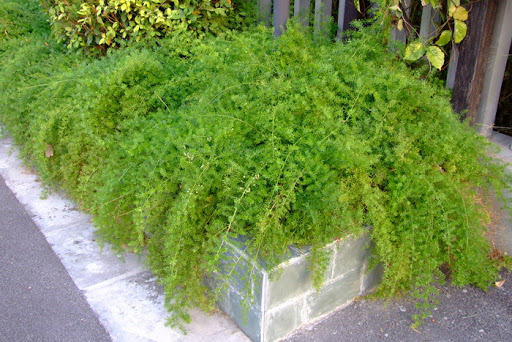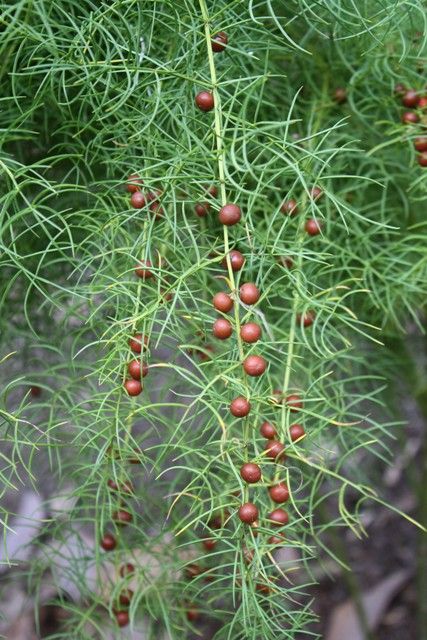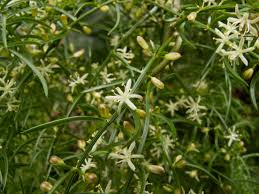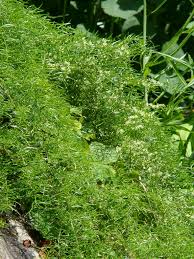Asparagus cochinchinensis is a climbing, perennial plant producing stems 1 – 2 metres long from a tuberous rootstock. The plant is often gathered from the wild for use in traditional medicine, and the roots are sometimes used locally for food.
This species has been used in traditional Chinese medicine for over 2,000 years. The roots contain asparagine, mucilage, starch and sugars. The dried root is antibacterial, anti-inflammatory, antipyretic, antiseptic, antitussive, diuretic, expectorant, nervine, sialagogue, stomachic, nervous stimulant and tonic. It is taken internally in the treatment of fevers, debility, sore throats, coughs etc. It is often decocted with other herbs and used in the treatment of a wide range of ailments including diabetes mellitus. It is commonly used in restorative recipes together with Rehmannia glutinosa and Codonopsis javanica. Prolonged usage is recommended for the treatment of impotence. The root is harvested when the plant is dormant and is dried for later use.
The plant has a folk history for the treatment of cancer, modern research has detected antitumor activity and it is now being studied for the treatment of lung cancer.



